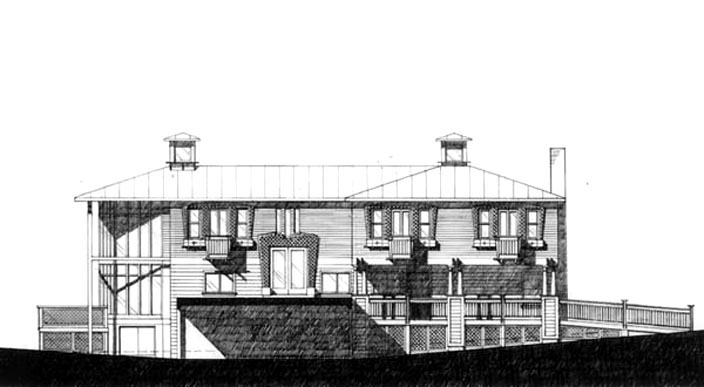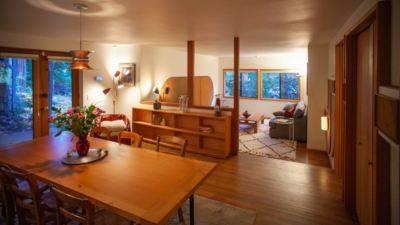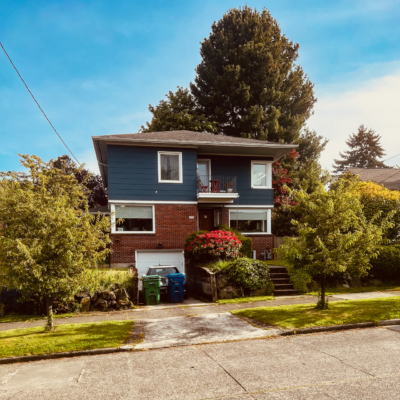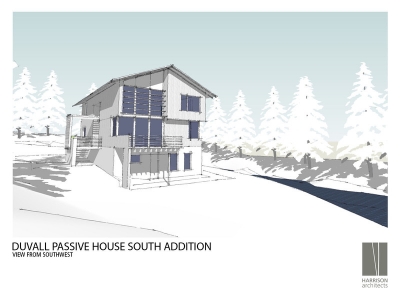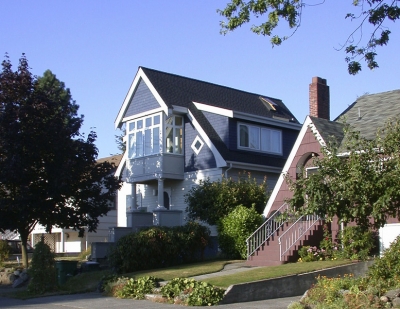Aquaculture in Greenwood
Shared housing is an affordable and positive alternative for many. It can increase the density of urban neighborhoods without changing their visual character, and provide some of the beneficial community aspects of co-housing. In this demonstration project, a house in the Greenwood area of Seattle currently shared by three people will be renovated to add rooms for three more. The main floor will be opened up to more generously accommodate sharing meals and community gatherings. To view the sunrise or sunset, the inhabitant of each upstairs bedroom will be able to step out through narrow french doors onto a “Romeo and Juliet” balcony with window boxes on either side. Wood lattice around the windows will support flowering vines – perhaps kiwi, wisteria or honeysuckle.
When the renovation is completed, this house will contribute to what Kentucky essayist and farmer Wendell Berry calls the “domestic economy”: Rather than merely being a place of consumption, this house will produce as well. Tilapia, a fish grown for food since the days of the ancient Egyptians, will be farmed in tanks on the first level of a new two-story greenhouse on the south end of the house. Nutrient-rich water from the tanks will fertilize hydroponic vegetables grown on the upper level. Functioning like an artificial wetland, the plant roots and microbes in the recycled glass beads of the vegetable beds will filter the water, and it will return to the fish tank clean without the need for additional chemical treatment. Extensive “edible landscaping” will also provide a share of food. Rain will be collected from the roof to water the garden. The accessible first floor bath will feature a composting toilet.
The owner plans to donate the home to the Evergreen Land Trust, thereby removing it from the speculative housing market.

